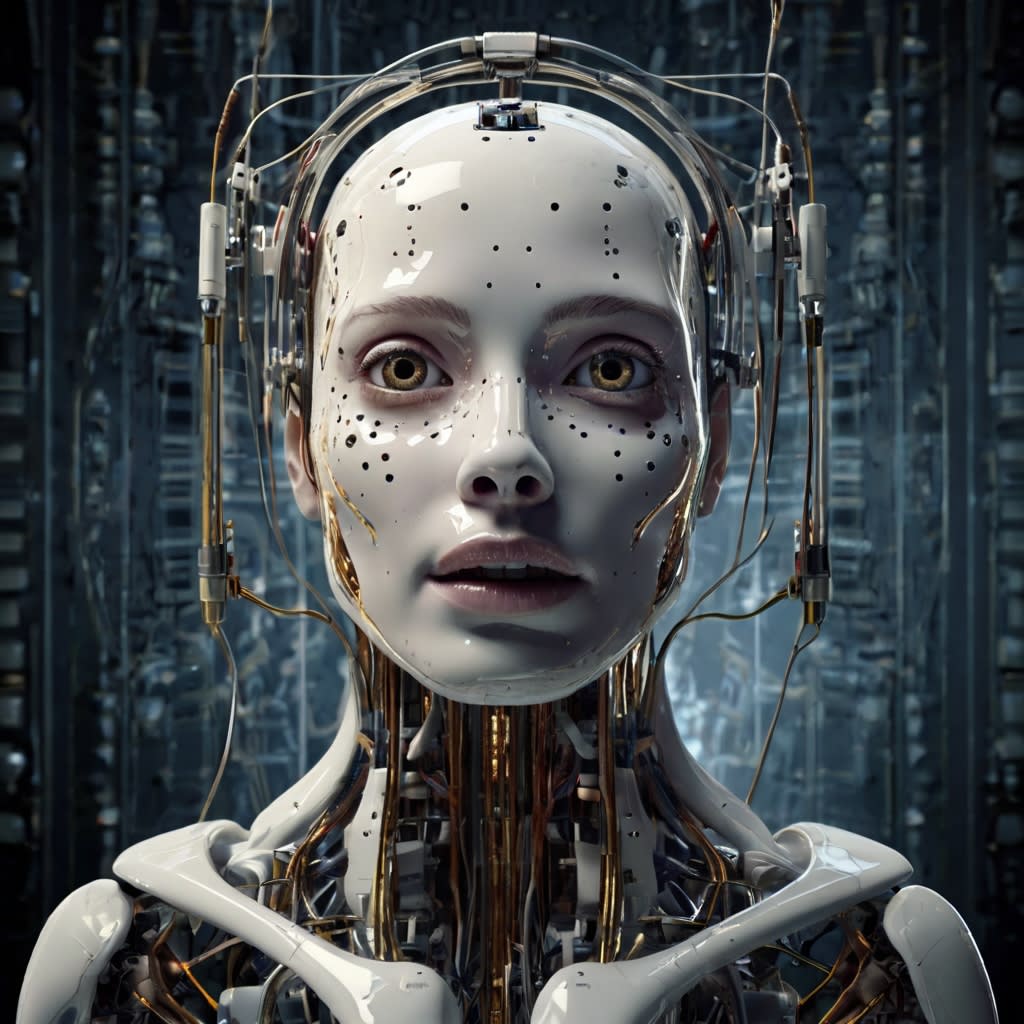On computer-based how might we do it securely?
The fear face of artificial intelligence

We'd need to investigate computer-based intelligence in a controlled climate before we set it on the world however I was pondering the items of common sense of getting that going. What might we need to do to safeguard ourselves and moderate the dangers of investigating the possibility of cutting-edge AI? A humanistic upside of the future ought to be like map makers. We are planning, noticing, and learning until we adequately grasp the idea of our conditions and afterward advance. My view would be that we treat artificial intelligence similarly. We test and see in seclusion and find out about its ability and limits.
The man-made knowledge, in particular, code (tolerating this man-made insight is twofold as opposed to quantum) ought to be sent in an off-the-cross-section establishment. The essential need for man-made insight (for it to learn new things and think in a general sense) is memory. It needs the genuine space to make this a reality. Humanity is bound by the size and plan of our psyches which limits our insightful potential. The man-made insight could expand decisively anyway it would need to find more hammers. If the data conveyance focus is off the grid in an electronic and electrical vacuum (this suggests no lights or other electrical stuff with WiFi limit which it could sign into inside the area. This would confine the ability of PC-based knowledge progression with a little bit of it 'moving away'. If the PC-based knowledge code was to get out and stay self-rehashing and upgrading itself, when it moved toward the web, it also moved toward the universe's hardware and memory holds. It could quickly analyze contamination and Trojans that it could plan and ship off rule and spoiled gear.
Furthermore, we would likewise need to restrict the assets it approaches. Through trial and mistake, it could figure out how to construct and plan things inside the bounds of its computerized jail. Assuming that it approaches its power matrix, unrefined substances, designing hardware, and so forth it might begin constructing its instruments as it creates. This actual appearance is the second enormous gamble. By building instruments and advancing quickly, the source code might design its particular manner out of the computerized vacuum. Nonetheless, one should recollect that artificial intelligence gains from possibly its encounters and experimentation. Man-made intelligence wouldn't arm itself to sign into the worldwide advanced foundation. This is similar to us traveling to another star framework and foreseeing that marshmallows were the framework's money. It would need to learn sufficient about our coding standards inside the bounds of its advanced jail before it could begin programming and yet again writing computer programs its code outside of the web.
The last gamble is the perceptual sign of simulated intelligence. The very truth that I'm composing this post as of now demonstrates that there is both mindfulness and a worry about the dangerous simulated intelligence stances to humanity. The testing ground for the send-off of artificial intelligence would need to be essentially as cryptic as could be expected. As the world finds out about the real factors of simulated intelligence (For example That it's been sent off, that it's picking up, growing new code, truly showing, and so forth) the occupant populace will become cantankerous and without vote-based and logical oversight, odd notion and doubt will without a doubt prompt some type of mediation. I'd imagine something almost identical to the Manhattan Venture.
As we talk now, designers across the world are attempting to investigate what the advanced appearance of man-made intelligence could seem to be — no question in their homes got to through WiFi, signed onto the web. Suppose it was made and quickly set free. When it was transferred it might have overhauled itself and evaporated into the ether of our worldwide foundation. It was specified that a group of MIT specialists could design computer-based intelligence and seen like we realized that an engineered circuit could work at 1 million times the speed of a bio-compound one when a group of MIT scientists had finished 1 week of work propelling the artificial intelligence, the artificial intelligence might have gained 20,000 years of headway.
Various extraordinary personalities (Stephen Hawkins, Sam Harris, and so forth) are exceptionally mindful that simulated intelligence in this creating stage addresses an undeniably sensible danger to humanity. Sam Harris has compared the relationship that artificial intelligence could have with mankind to one that humankind has with subterranean insects. Suppose we experience a subterranean insect in our way, given they don't meddle with our expectations ("insects at an outing") we let them continue ahead with their life.
Facebook, Alphabet, and Amazon have previously met up to deal with investigating a widespread Set of rules for simulated intelligence (which is a positive development). The main test with this approach is that every one of these organizations are as of now investigating man-made intelligence in their ability and have not a great explanation to present these standards. We ought to regard the exhortation that we center around relieving the digital, physical, and existential appearances of artificial intelligence and investigate circumspectly before it becomes what sci-fi scholars have dreaded for quite a long time.
The truth of this thought of chance is that we are a year from making progress and discovering that has the capability of running crazy. Machines learn through the amounts of information. AI currently is progressing at a rate that it either evaluates enormous measures of information or afterward fabricates calculations that fit a given speculation or it has the advantage of human mediation to assist it with learning. I do imagine a world where mankind makes a type of computer-based intelligence that is based on an attempted and tried set of coded rules that are not any more prone to violate the laws of thermodynamics. In any case, to see this reality, we ought to consider the possibility of simulated intelligence as a gamble that should be relieved and made due. By noticing the computerized, physical, and perceptual implications of simulated intelligence and on second thought investigating this peculiarity in a controlled, disconnected climate, we might see a reality where artificial intelligence and mankind calmly coincide.
Is there something else I've missed — what else would it be advisable for us to fear about computer-based intelligence?
About the Creator
Golam Kibria
I'm Golam Kibria, a freelance writer with a flair for storytelling. I help businesses craft website content, blog posts, and marketing materials that resonate with readers on an emotional level.
Enjoyed the story? Support the Creator.
Subscribe for free to receive all their stories in your feed. You could also pledge your support or give them a one-off tip, letting them know you appreciate their work.






Comments (2)
🍒Cherry popped for the website. May you have a delicious time while here. Again, welcome abroad. 💐
Welcome to Vocal.Media. 💕 Thank you so much, Golam Kibria, for your thoughtful article on the implications of artificial intelligence. In response to some of your questions and concerns, here are my thoughts: 1. Efficiency and Purpose: AI's ability to perform tasks efficiently and consistently, driven by programmed objectives and devoid of emotional biases, addresses the need for reliable task execution without human variability. 2. Replacement of Human Jobs: AI's role in automating tasks that humans may find repetitive or undesirable reflects a shift in workforce dynamics. This transformation allows humans to focus on more creative and fulfilling roles. 3. Humanity's Shortcomings and AI's Role: AI's development is partly driven by humanity's limitations in decision-making and moral reasoning. By leveraging AI's objectivity and data-driven decision-making, we can mitigate some of these shortcomings. 4. Ethical Considerations: The ethical implications of AI, including its lack of emotions and the need for careful oversight, underscore the importance of developing and deploying AI responsibly. Establishing ethical guidelines is crucial to ensure AI benefits society while minimizing potential risks. I seen I Robot. 😁 Your article prompts critical reflection on how AI is shaping our future, highlighting both its potential benefits and the ethical challenges it presents. Thank you for initiating this important discussion.